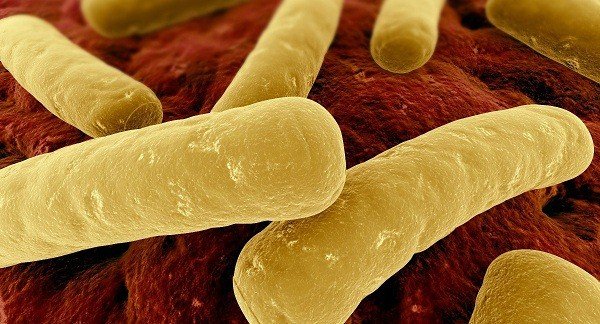Do gut bacteria protect against food allergies

The presence of conditionally pathogenic Clostridia bacteria in the composition of the intestinal microflora protects against food allergies – this fact was established by scientists from the University of Chicago in an experiment conducted on mice.
Activating the reaction of the immune response, preventing the entry of the allergen into the bloodstream, clostridia minimize their impact and prevent the development of sensitization – a key stage in the occurrence of food allergies.
The discovery made, the results of which were published in the journal Proceedings of the National Academy of Sciences, provides an opportunity for preventive probiotic therapy in acute allergic reactions to food products.
The causes of food allergies – in some cases leading to a fatal outcome, the body’s inadequate immune response to certain types of food – are unknown.
At the same time, the results of previous studies show that a significant impact of the significant growth in the prevalence of food allergies in developed countries, especially among children / for example, according to data from the Center for Disease Control and Prevention, this indicator increased from 1997 to 2007 . with 18% /, show the violation of the normal composition of the microflora of the intestines, hygienic and dietary habits, as well as the wide application of antibacterial preparations.
“Such factors as the environment, as well as the unjustified appointment of antibiotics, fatty food, the prevalence of cesarean section, insufficient contact with common pathogens, artificial feeding of the baby – all these factors affect the composition of the bacterial community” – notes one of co-authors of the study Catherine Naegler – “The results obtained by us oblige us to assume that the consequences of such a development of circumstances is the increase in cases of food allergies.”
Naegler and her colleagues, in order to study the influence of intestinal bacteria on the intensity of the immune system’s response to food, subjected mice raised in sterile conditions, in whose bodies they were not colonized by any microorganisms and rodents, subjected immediately after birth of antibiotic therapy, of the impact of the peanut allergen.
In the organisms of the animals from the 2 groups, the scientists observed a strong response immune reaction, in which a significantly greater number of antibodies to allergens were formed compared to mice with normal intestinal microflora.
The experiments showed that the level of sensitization /increased reactive sensitivity of the body to foreign bodies/ decreases when the conditionally pathogenic bacteria of the genus Clostridia are introduced into the intestinal microflora of the animals.
These microorganisms are usually part of the normal flora of the gastrointestinal tract, some of them under certain conditions form one of the strongest biological poisons known to man – botulotoxin, tetanospasmin, etc.
As the researchers found, the intestinal bacteria belonging to another widespread genus – Bacteroides, introduced into the composition of the microflora of the mice, did not cause an effect similar to the introduction of clostridia, which led the scientists to the conclusion about the unique protective role of the latter in food allergies .
To establish the biological mechanism underlying this phenomenon, Naegler and her colleagues conducted a genetic analysis of the immune response to the presence of clostridia in the gut at the cellular and molecular level.
The analysis showed that the bacteria stimulate local immune cells to synthesize high levels of interleukin 22 (IL-22) – signaling molecules that reduce the permeability of the cells of the intestinal lining.
Experiments on mice subjected immediately after birth to antibiotic therapy showed that the artificial introduction of interleukin 22, as well as the colonization of the intestines with clostridia, reduced the levels of antibodies to the peanut allergen



